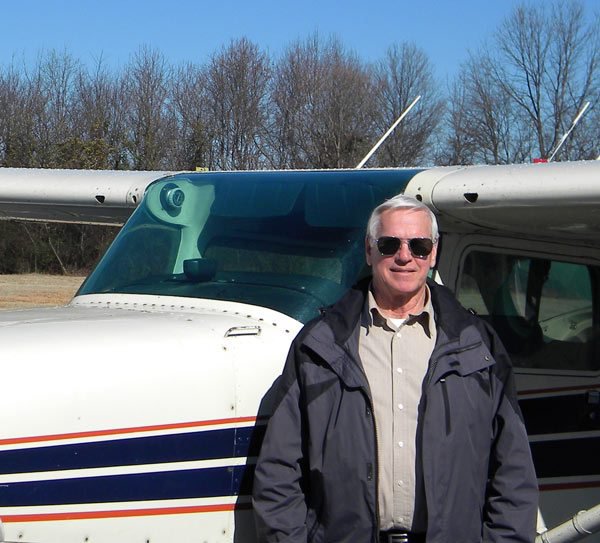Professional flight training is the most common reason to seek training in a twin engine airplane.
To become an airline pilot you must have both a Commercial license and Multi Engine Rating. So, while obtaining a Multi Engine Rating might be a given, “where” you go for your training might not be so obvious.
Here are some considerations on choosing a company for professional multi engine flight training.
Even though more flight schools are adding multi engine flight training each week, there are still relatively few schools that offer the training.
A twin engine airplane is a massive drain on the capital of the average flight school. In addition a factor making a twin even less attractive to flight schools is that the percentage of the training in the professional flight school syllabus conducted in the multi engine airplane is the smallest. So the most expense equipment produces the least income. Bummer!
What matters to you, however, is that the flight school you choose has a twin engine airplane. That way you can complete your training in the familiar environment where you are receiving the majority of your training. What other option is there you ask? Some flight schools accept professional training students with the intention of sending that student to another school for the multi engine training.
On the surface that may not seem to be such a problem, but consider what that really does to your training. Each flight school has its staff, teaching style and dispatch procedures. If you go to another facility, often in a different city, you will be unfamiliar with the staff, the school personality and dispatch procedures. If that’s not discouraging enough, add another wrinkle to the list of negatives. By going to a new facility you must move to another hotel or apartment for the length of time required for the advanced flight training. Moving requires that you vacate your lodging in the primary city or leave your lodging unoccupied for the time required to obtain your multi engine rating. Now let’s add just one more little bitty thing…the most expensive, per hour, cost of training is conducted in the twin engine airplane. If you are required to go to an unfamiliar airport with unfamiliar taxi routes, frequencies, instrument approaches and practice areas, part of your attention is diverted from learning to fly the more complex airplane while you become familiar with all of these other things. That is hard to swallow when you are paying up to three times the hourly airplane cost for the multi engine airplane training.
Multi engine flight training may be some of the most fun you will have during your flight training process. The size of the airplane and the feel of the controls really gives the pilot a sense of flying a very substantial aircraft. The performance is also amazing. When compared to some of the smaller airplanes like Diamond aircraft you will feel like you are flying a jumbo jet! In a Cess na 310Q like we own, the speed is 120kts and climbing rapidly until you make serious reductions in power. For making trips the extra speed and load capacity are fantastic.
Can we agree that it is best to enroll in a flight school that has single and multi engine training at the same facility, using the same staff and dispatch procedures? Of course we can. It makes no sense to do otherwise.

Now to see the other essential elements involved in choosing the best flight school, visit our article here that discusses everything from flight school location to the role of management in the day to day operation of the flight training to flight school financing.
A word to those who are already pilots and are considering a personal airplane: Speaking of speed, safety and load capacity, I highly recommend a twin engine airplane for pilots who are considering a personal airplane. The cost is very low when buying because of the added cost to own and maintain the airplane. By finding a school that has organic maintenance staff, you may be able to trade some use of your airplane by the school in return for airplane management, hangar fees, etc. I have found that owning a multi engine airplane and co operating with a qualified school has been a great way to justify having a fantastic performing airplane when I want to go somewhere.

The first step to take if you think a twin engine airplane might be for you is to arrange for some dual time in one. For me the Cessna 310 is the way to go. I tried a Seneca but the 310 just performs better and made me feel better while flying it. 310’s are also pretty easy to find. I would suggest that you make a trip to Greenville,SC. Bring the family or at least your spouse and enjoy one of the finest downtown areas in America. Restaurants and entertainment venues are on every corner with some especially charming late-night spots. The Greenville Downtown Airport (KGMU) is only 5 minutes away (Uber is available if you didn’t drive). US AeroFlight has a 310Q available for multi engine flight instruction and they have some of the nicest instructors you can find anywhere. Charles, their expert mechanic, keeps the airplane in tip top shape and you will have a blast flying this machine.
Written By Steve Fowler
Steve is a professional pilot and flies the Airbus 330 for a legacy airline. His career has included recreational civilian flying during college and flying as a fighter pilot in the United States Air Force.
He owns and flies his Cessna 310 with his Private Pilot daughter, Casey.

